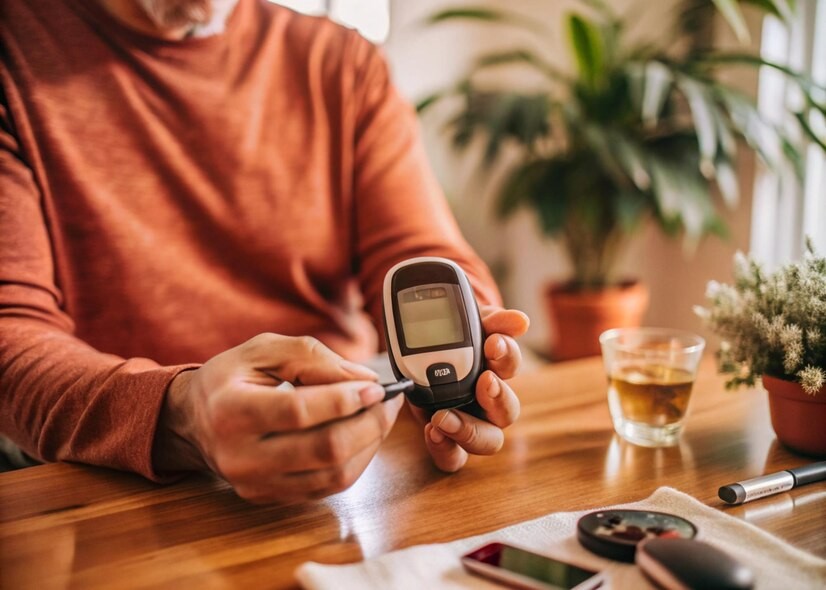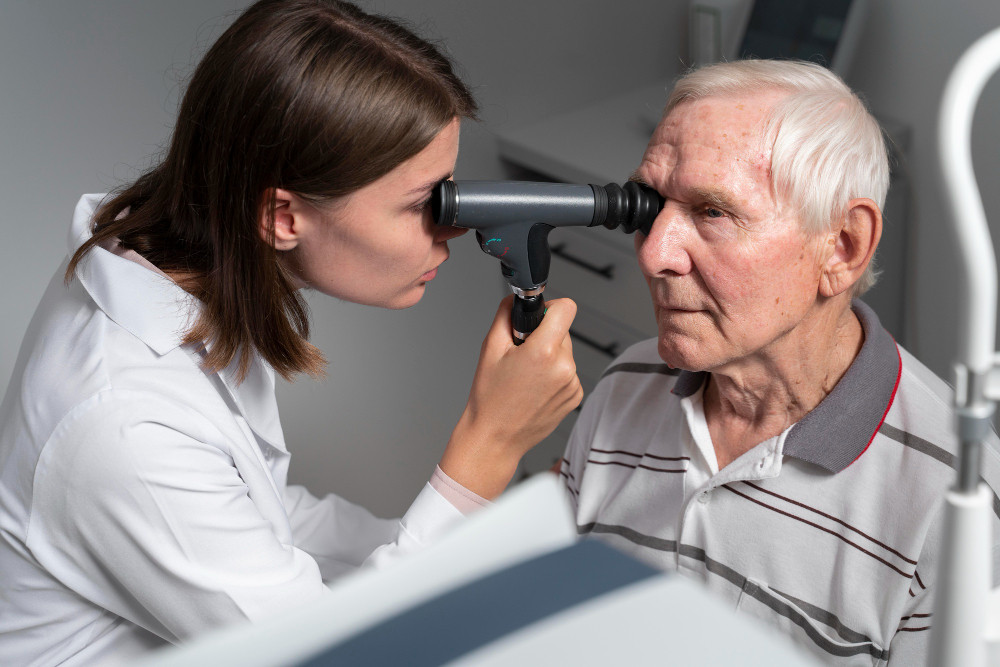Diabetes tipe 2 telah menjadi salah satu penyakit dengan peningkatan kasus yang signifikan di seluruh dunia, termasuk di Indonesia. Penyakit ini terjadi ketika kadar gula darah tetap tinggi, karena adanya gangguan respons insulin atau produksi insulin yang tidak memadai.
Apabila kondisi ini dibiarkan dan tidak terkelola dengan baik, maka dapat menyebabkan komplikasi seperti penyakit jantung, gagal ginjal, gangguan penglihatan, dan masalah pada saraf. Sebenarnya apa penyebab penyakit diabetes tipe 2? Apakah benar gemar mengonsumsi yang manis-manis menjadi penyebab utamanya?
Penyebab Penyakit Diabetes Tipe 2
Selama ini, banyak orang beranggapan bahwa diabetes tipe 2 hanya disebabkan oleh konsumsi makanan dan minuman manis secara berlebihan. Namun, sebenarnya penyebab penyakit ini jauh lebih kompleks dan tidak hanya terkait dengan kebiasaan mengonsumsi gula.
Berikut adalah penyebab penyakit diabetes tipe 2:
Gaya hidup tidak sehat
Faktor utama yang memicu diabetes tipe 2 adalah pola hidup yang tidak sehat, terutama yang berkaitan dengan kebiasaan makan dan aktivitas fisik. Kegemaran makan karbohidrat olahan, lemak jenuh, dan gula tambahan secara berlebihan dapat menyebabkan kenaikan berat badan dan meningkatkan risiko resistensi insulin.
Ketika tubuh terus-menerus terpapar kadar glukosa yang tinggi, pankreas dipaksa untuk memproduksi lebih banyak insulin. Lama-kelamaan, sel-sel tubuh menjadi kurang sensitif terhadap insulin. Kondisi ini dikenal dengan istilah resistensi insulin.
Kurangnya aktivitas fisik juga meningkatkan risiko berkembangnya diabetes tipe 2. Aktivitas fisik rutin membantu sel-sel otot menggunakan glukosa sebagai energi, sehingga mengurangi kadar gula dalam darah. Tetapi, ketika gaya hidup menjadi tidak aktif, seperti lebih sering rebahan, bermain ponsel, dan bersantai-santai, maka tubuh menjadi kurang efisien dalam mengelola glukosa. Kondisi ini kemudian dapat memperburuk resistensi insulin.
Baca Juga: Mengapa Orang dengan Diabetes Tidak Boleh Telat Makan?
Kelebihan berat badan dan obesitas
Kelebihan berat badan, terutama penumpukan lemak di area perut akan meningkatkan risiko diabetes tipe 2. Lemak viseral yang membungkus organ-organ dalam berkaitan erat dengan resistensi insulin. Lemak ini menghasilkan hormon dan senyawa lainnya yang berkontribusi menyebabkan peradangan jangka panjang pada tubuh. Peradangan inilah yang berperan dalam terjadinya resistensi insulin.
Menurunkan berat badan dapat meningkatkan sensitivitas insulin, yang juga akan menurunkan risiko diabetes tipe 2 dan membantu mengelola kondisi tersebut.
Faktor genetik dan riwayat keluarga
Meskipun gaya hidup memainkan peran besar dalam diabetes tipe 2, adanya faktor genetik juga tidak bisa diabaikan. Orang yang memiliki keluarga dengan riwayat diabetes tipe 2 lebih berisiko mengalami penyakit yang sama. Gen tertentu dapat memengaruhi cara tubuh dalam memproduksi dan menggunakan insulin.
Baca Juga: Boleh atau Tidak Penderita Diabetes Makan Nasi Putih?
Kondisi kesehatan dan penggunaan obat-obatan
Kondisi kesehatan seperti tekanan darah tinggi, PCOS, obesitas, sleep apnea, kolesterol tinggi, dan penyakit jantung dapat meningkatkan risiko diabetes. Demikian juga dengan penggunaan obat-obatan seperti kortikosteroid, antipsikotik, beta blocker, dan beberapa obat tekanan darah tinggi apabila digunakan dalam jangka panjang dapat memengaruhi metabolisme glukosa dan insulin.
Diabetes tipe 2 tidak dapat disembuhkan, tetapi perubahan gaya hidup sehat dapat membantu mengelola gejala dan memungkinkan Anda menjalani kehidupan yang normal. Penting untuk mengenali tanda-tanda diabetes tipe 2, seperti sering haus, sering buang air kecil, kelelahan, rasa lapar yang berlebihan, luka yang sulit sembuh, kulit kering, kesemutan, dan penglihatan yang kabur.
Jika Anda mengalami gejala-gejala tersebut, segera periksakan diri ke dokter untuk mengetahui penyebabnya. Anda juga bisa memanfaatkan layanan konsultasi kesehatan melalui Ai Care dengan mengunduh aplikasinya di App Store atau Play Store.
Mau tahu informasi seputar penyakit lainya? Cek di sini, yah!
- dr Nadia Opmalina
WebMD (2024). Type 2 Diabetes: Symptoms, Causes, and Treatment. Available from: https://www.webmd.com/diabetes/type-2-diabetes
Cleveland Clinic (2023). Type 2 Diabetes. Available from: https://my.clevelandclinic.org/health/diseases/21501-type-2-diabetes
Cleveland Clinic (2021). Insulin Resistance. Available from: https://my.clevelandclinic.org/health/diseases/22206-insulin-resistance
Kanica Yashi and Sharon F. Daley (2023). Obesity and Type 2 Diabetes. Available from: https://www.ncbi.nlm.nih.gov/books/NBK592412/
Cleveland Clinic (2022). Visceral Fat. Available from: https://my.clevelandclinic.org/health/diseases/24147-visceral-fat
American Diabetes Association. Genetics of Diabetes. Available from: https://diabetes.org/about-diabetes/genetics-diabetes












